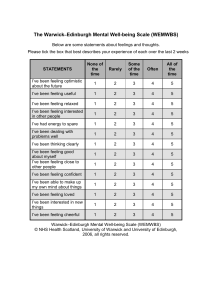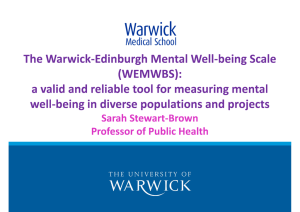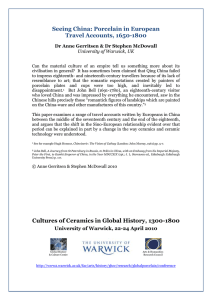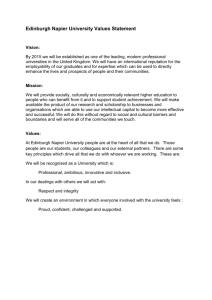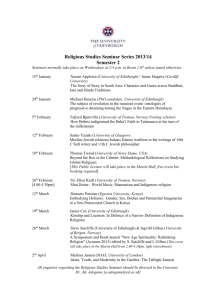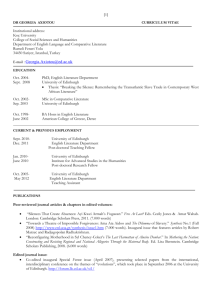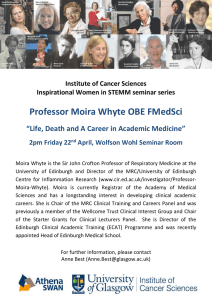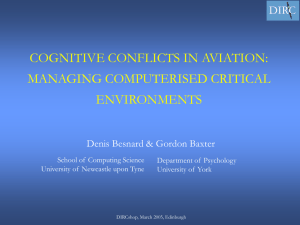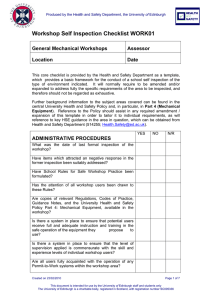CENTRE FOR THE HISTORY OF MEDICINE SEMINAR SERIES 2011-2012 AUTUMN TERM
advertisement
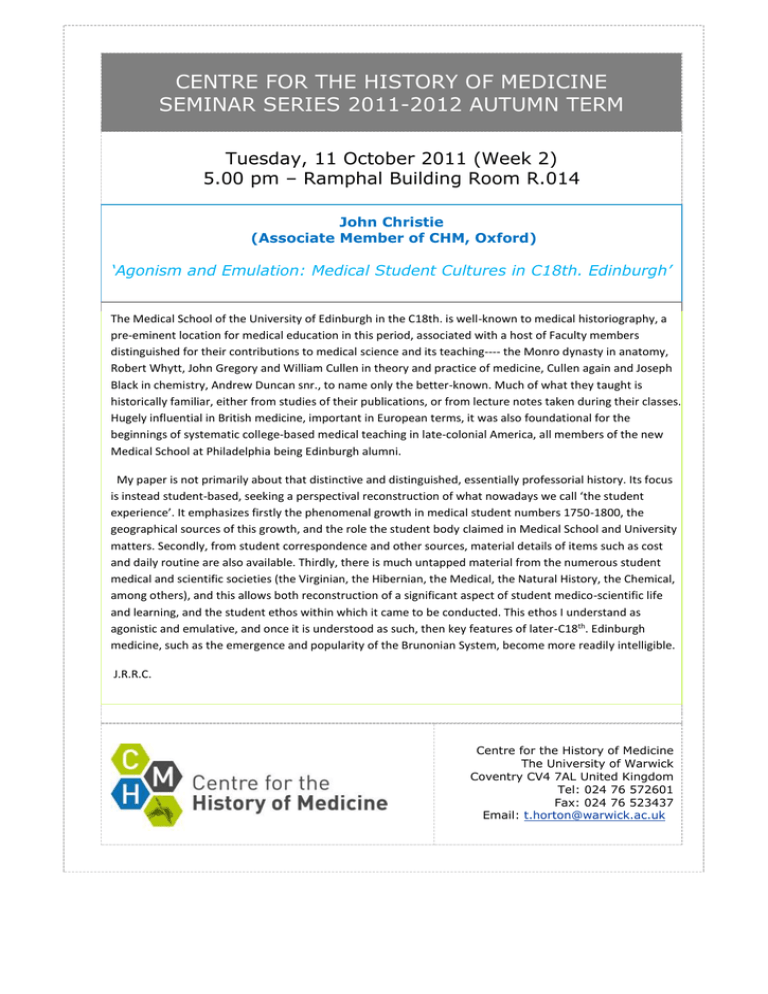
CENTRE FOR THE HISTORY OF MEDICINE SEMINAR SERIES 2011-2012 AUTUMN TERM Tuesday, 11 October 2011 (Week 2) 5.00 pm – Ramphal Building Room R.014 John Christie (Associate Member of CHM, Oxford) ‘Agonism and Emulation: Medical Student Cultures in C18th. Edinburgh’ The Medical School of the University of Edinburgh in the C18th. is well-known to medical historiography, a pre-eminent location for medical education in this period, associated with a host of Faculty members distinguished for their contributions to medical science and its teaching---- the Monro dynasty in anatomy, Robert Whytt, John Gregory and William Cullen in theory and practice of medicine, Cullen again and Joseph Black in chemistry, Andrew Duncan snr., to name only the better-known. Much of what they taught is historically familiar, either from studies of their publications, or from lecture notes taken during their classes. Hugely influential in British medicine, important in European terms, it was also foundational for the beginnings of systematic college-based medical teaching in late-colonial America, all members of the new Medical School at Philadelphia being Edinburgh alumni. My paper is not primarily about that distinctive and distinguished, essentially professorial history. Its focus is instead student-based, seeking a perspectival reconstruction of what nowadays we call ‘the student experience’. It emphasizes firstly the phenomenal growth in medical student numbers 1750-1800, the geographical sources of this growth, and the role the student body claimed in Medical School and University matters. Secondly, from student correspondence and other sources, material details of items such as cost and daily routine are also available. Thirdly, there is much untapped material from the numerous student medical and scientific societies (the Virginian, the Hibernian, the Medical, the Natural History, the Chemical, among others), and this allows both reconstruction of a significant aspect of student medico-scientific life and learning, and the student ethos within which it came to be conducted. This ethos I understand as agonistic and emulative, and once it is understood as such, then key features of later-C18th. Edinburgh medicine, such as the emergence and popularity of the Brunonian System, become more readily intelligible. J.R.R.C. Centre for the History of Medicine The University of Warwick Coventry CV4 7AL United Kingdom Tel: 024 76 572601 Fax: 024 76 523437 Email: t.horton@warwick.ac.uk
